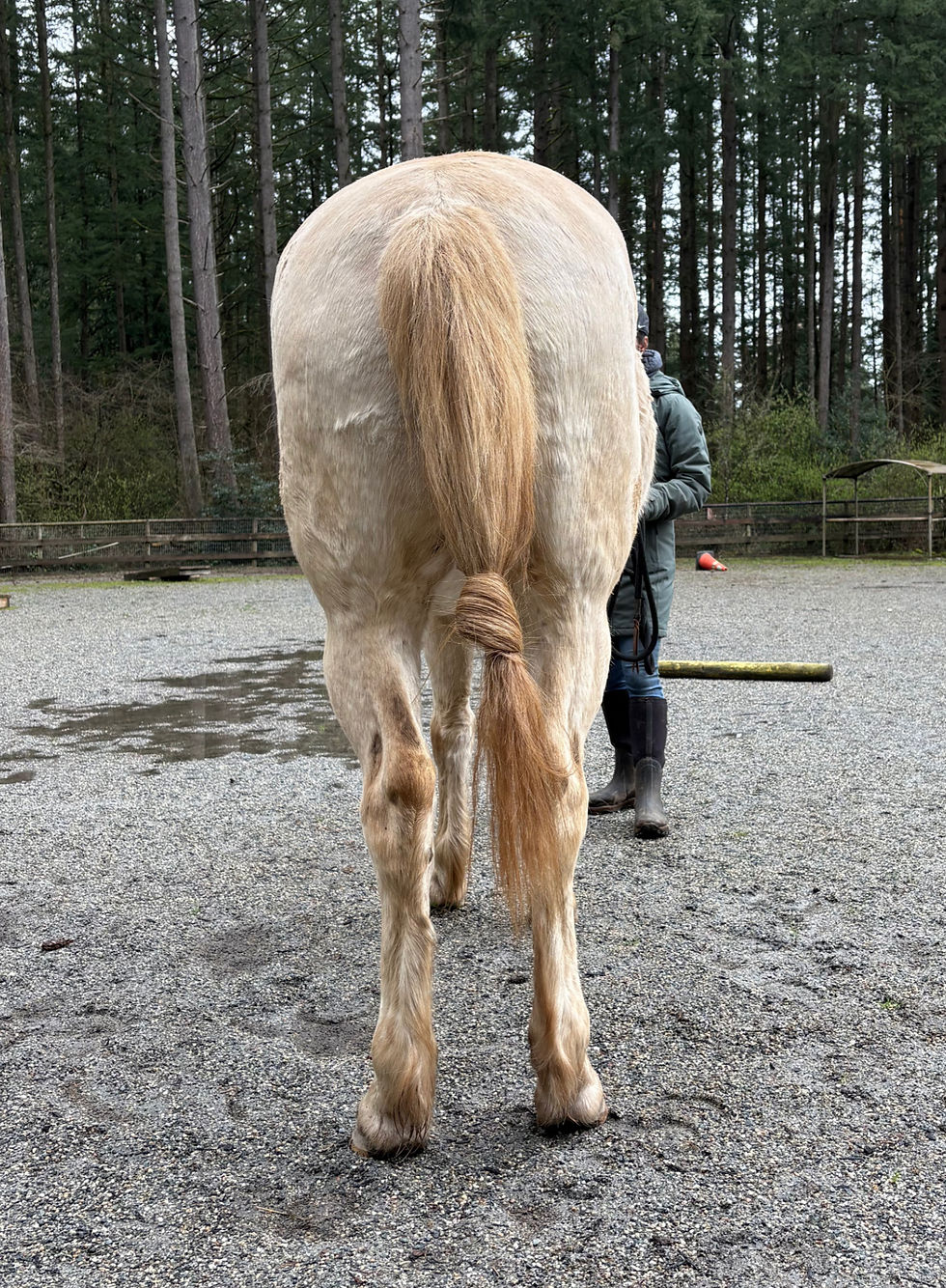How Much Discomfort Are You Willing To Endure to Best Serve Your Equine Partner?
- Elisse Miki

- Jan 31, 2023
- 3 min read
Updated: May 26
The more I place emphasis on embodying my own values (walking the talk!) the more aware I become of the resistance to discomfort that exists amongst the collective.

Many are desiring of treatments or professional advice until something is recommended that is “triggering”. I know for myself, I have felt discomfort many times over when new science arises, or different aspects of ethical care are brought to light which require me to shift my own internal dialogue. Much easier said than done!
But when it comes to Identifying areas of weakness around a horse’s physiology, whether that be movement dysfunction, hoof [im]balance, equipment, tack fit, and even horsemanship, there is no fault-finding only educated estimations of what the root cause of the physical presentation is at this moment in time.
Sometimes that means changing hoof care practitioners (discomfort). Other times it means spending more money on custom tack that fits your horse properly (financial discomfort). A lot of times it means letting go of old beliefs around equine behaviour (more discomfort) and most of the time it means releasing the stories built around preserving one’s own sense of self that have absolutely nothing to do with the horse (most discomfort).
Do you feel triggered right now?
That’s good. It means we are touching on something near and dear to your heart so we can build out from there. Triggers merely serve as illuminations of our own blind spots. But we have to be open to that feeling of defenceless and seek to move through the discomfort rather than around and around in dysfunctional cycles.
I know when I have been faced with these situations, I can distinctly remember the excruciating terror that coursed through my insides… “Am I the one causing this? Am I responsible for the conditions I say I don’t want?”. When we take a long hard look at the role we play in our own horses lives we may start to recognize all the ways in which we are implicit to the conditions we say that we don’t want.
My role as a therapist, is only to illuminate what could be going on for the horse. To give a language to the presentation. To enable a voice for the non-verbal. But the rest is up to the horse guardian (yes, you!). You are your horses best advocate and trusted confident.
So, if a -new to you- idea is presented by one of your equine professionals, try exploring it, because you never know, it could actually be just what the horse needs. Shifting focus from fixed ideas confounded in outdated science and practice towards a modern-day approach. For me, this has been the real game changer. Granting myself the ability to release old ideas and embrace the current science has allowed my own herd of seniors the ability to not just survive but actually thrive.
Maintaining a growth mindset is what propels me forward each and every day. I never know what I will learn on this particular day and for that I am grateful, despite the immense discomfort that often accompanies a change in thinking.
Ready to Learn More?
Explore our Free Resources for tools you can use right away, dive into our Online Courses to deepen your knowledge, or join one of our Certification Programs to take your equine therapy practice to the next level.






Comments